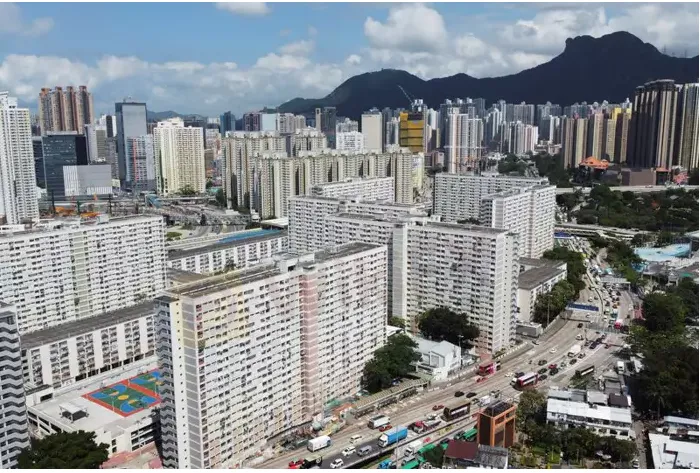简体中文
繁體中文
English
Pусский
日本語
ภาษาไทย
Tiếng Việt
Bahasa Indonesia
Español
हिन्दी
Filippiiniläinen
Français
Deutsch
Português
Türkçe
한국어
العربية
Hong Kong June home prices fall to the lowest in 18 months
Abstract:Hong Kong private home prices fell at a faster pace in June and dropped to the lowest since December 2020, official data showed on Wednesday, as homebuyers stayed on the sidelines due to an uncertain outlook and rising interest rates.

Home prices in one of the worlds most unaffordable housing markets slipped 1.1% last month from a month earlier, compared with a revised 0.2% decline in May.
Rates in Hong Kong tend to move in lockstep with U.S. rates, as its currency is pegged to the greenback, although they have lagged their U.S. equivalents in recent months.
But the market expected major banks in the city would likely raise their best lending rates this week, if the U.S. Federal Reserve raises rates sharply as expected later on Wednesday.
One month Hibor – the Hong Kong Interbank Offered Rate, a benchmark used for pricing mortgages – last week rose to its highest since May 2020.
“A rise in interest rates will affect housing transactions in the short term,” said Martin Wong, Greater China head of research & consultancy at Knight Frank, adding that it would have more of a psychological impact rather than an actual impact of lowering buyers repayment ability.
Home prices in the financial hub have dropped 3.4% so far this year.
Hong Kong‘s economy buckled this year under some of the world’s most stringent restrictions to contain COVID-19 outbreaks but sentiment improved after the city eased most of the measures and there were waves of new development launches.

Disclaimer:
The views in this article only represent the author's personal views, and do not constitute investment advice on this platform. This platform does not guarantee the accuracy, completeness and timeliness of the information in the article, and will not be liable for any loss caused by the use of or reliance on the information in the article.
Read more

Boosted by U.S. CPI, Yen May Rise Again
Lower-than-expected U.S. CPI data has fueled rate-cut expectations, weakening the dollar and renewing investor interest in the yen as a safe-haven currency.

Forex Scam Tactics and How to Avoid Falling for Them
Forex scams have taken a vicious cycle with scammers using new and persuasive tactics to trick investors into investing in fraudulent schemes. Read more to know their tactics and how to stop falling for them.

ASIC Flags New Threat: Unlicensed Finfluencers Targeting Aussie Youth Through Hype Culture
ASIC cracks down on finfluencers targeting Aussie youth with hype-driven content, issuing 18 warnings for promoting risky products without a license.

Trade Nation: A Closer Look at Its Licences
In an industry where safety and transparency are essential, the regulatory status of online brokers has never been more important. For traders seeking to protect their capital, ensuring that a platform operates under recognised and stringent oversight can make all the difference. Keep reading to learn more about Trade Nation and its licenses.
WikiFX Broker
Latest News
U.S. consumer prices rose 2.4% in May, below expectations
ASIC Flags New Threat: Unlicensed Finfluencers Targeting Aussie Youth Through Hype Culture
Markets4you Launches Global Giveaway to Celebrate 18th Anniversary
How to Choose the Right VPS for Forex Trading
Webull Adds Crypto Trading Through Kalshi Partnership
Investment Scam Exposed: Deepfake Videos of Top Indian Leaders & Tech Icons misused to Lure Investor
HYCM Flagged by Malaysia’s Securities Commission
AMarkets Review 2025: Read Before Trade
Global Introducing Broker Growth Sharing Campaign
Boosted by U.S. CPI, Yen May Rise Again
Currency Calculator


